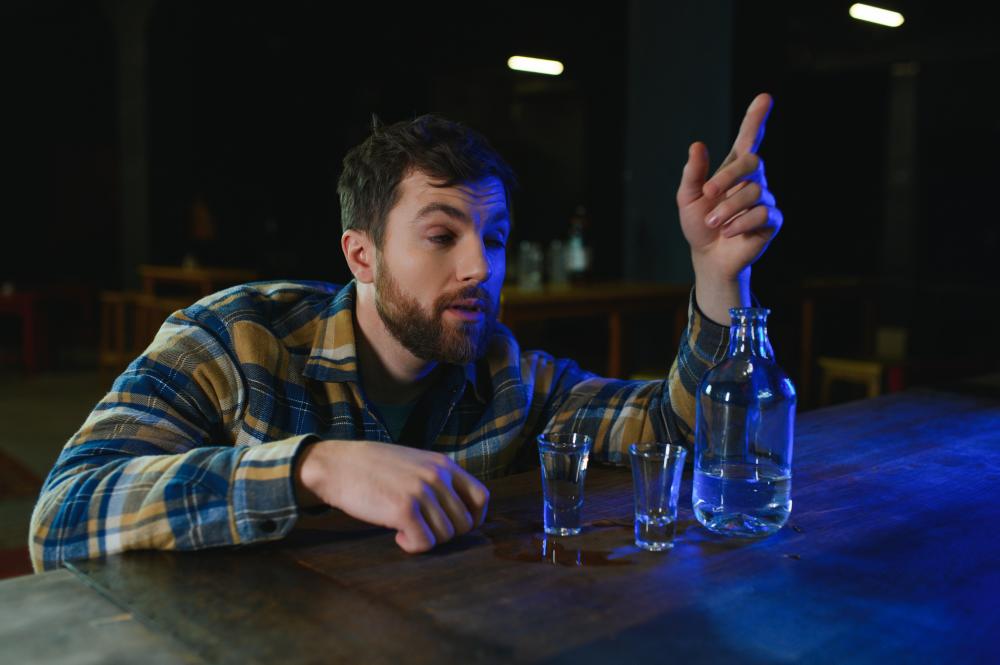
Understanding the Role of a Substance Abuse Interventionist
As a leading organization dedicated to guiding families through the challenging journey of addiction recovery, we encounter many misconceptions about what a Substance Abuse Interventionist does. Our team at Intervention.com, led by Brad Lamm, focuses on creating a nurturing and safe environment for these interventions. The primary role is to facilitate conversations that encourage loved ones to confront their addiction issues with empathy and expertise. This process involves not only the person struggling with addiction but also their close network of friends and family, creating a united front.
Components of a Successful Intervention
A successful intervention requires more than just the presence of a Substance Abuse Interventionist. It is built upon four key components: preparation, education, support, and follow-up. Each family is unique, so our approach is tailored to the individual’s circumstances and needs. Our proprietary methods, such as the BreakFree Intervention and Kathleen Murphy’s action-method approach, demonstrate our commitment to ethical care and legal guidelines.
Preparation involves gathering information about the loved one’s addiction and strategizing the intervention day. Education provides the family with insights into addiction and recovery processes. Support is paramount during the intervention, where emotions run high, and ongoing follow-up ensures that the recovery journey continues beyond the first step.
Breaking Down the “5 A’s” of Substance Abuse Intervention
Our approach aligns with the “5 A’s” model, known for treating tobacco dependence but adaptable to broader addiction intervention strategies. We integrate these steps to form a robust framework for confronting addiction.
Ask
The first step involves identifying the presence of substance use. It’s crucial to document and address these concerns regularly. By integrating this into routine care, it becomes a normalized part of health discussions.
Advise
Providing clear, personalized advice encourages individuals to consider quitting. This conversation should be compassionate yet firm, emphasizing health benefits and support systems in place.
Assess
Evaluate the individual’s readiness to change. This assessment guides the next steps, determining if immediate intervention is required or if ongoing support and encouragement are necessary.
Assist
For those ready to quit, we offer counseling and support. The interventionist acts as a mediator, ensuring communication remains respectful and the focus stays on positive outcomes and available treatment options.
Arrange
Scheduling follow-up meetings or calls is essential to maintain momentum. These interactions allow us to adjust the recovery plan as needed and provide continuous encouragement.
Creating a Support Circle for Interventions
One of the unique aspects of our approach is the emphasis on forming a solid support circle. This includes parents, siblings, friends, and even colleagues, all coming together to support the loved one. The power of a united group can significantly impact the acceptance and success of intervention.
Involving various members of a person’s life in the intervention not only helps to spread responsibility but also shows the individual the breadth of their support system. This network often plays a critical role in motivating individuals to accept help and embark on their recovery journey.
The support circle is carefully curated, considering the relationships and dynamics within the group. Each member has a role, whether it is providing emotional support, practical assistance, or simply a listening ear.
Early Intervention and Its Significance
We stress the importance of early intervention as it often improves treatment outcomes. Identifying signs of addiction early can prevent further harm and facilitate a smoother recovery process. When families recognize these signs and seek help promptly, the chances of successful intervention increase significantly.
Observing behavioral changes, social withdrawal, or declining health can be early indicators of substance abuse. Taking action at this stage can prevent the escalation of addiction and its consequences. Our interventionists guide families on recognizing these signs and developing strategies for addressing them.
Early intervention also allows for less resistance from the individual struggling with addiction. When approached compassionately and with understanding, they are more likely to accept help and consider treatment options.
Professional Training and Proprietary Methods
Our interventionists go through extensive training to ensure they are equipped to handle complex situations. Led by Brad Lamm, our team is trained in various intervention techniques, offering a well-rounded approach to addiction interventions. This training includes understanding psychological aspects, effective communication, and managing emotional responses during interventions.
Our proprietary methods, including the BreakFree Intervention, highlight our commitment to innovation in the field. These methodologies incorporate family-focused strategies, understanding that addiction affects not just the individual but their entire support system. By maintaining ethical and legal standards, we ensure that our interventions are both professional and compassionate.
The training also involves learning how to adapt strategies to each unique case, ensuring that interventions are not one-size-fits-all but rather personalized to the individual’s and family’s needs.
The Role of Ongoing Support Post-Intervention
Intervention is just the beginning of the recovery journey. Ongoing support is crucial for maintaining progress and preventing relapse. Our team remains engaged with families and individuals post-intervention, offering guidance on next steps, whether it’s detoxification, therapy, or rehabilitation.
Regular follow-ups help in addressing any challenges or changes in circumstances, ensuring that the recovery plan remains relevant and effective. This continuous support fosters a sense of accountability and helps the individual stay committed to their recovery goals.
Personal Insights and Experiences from the Field
Throughout our work, we encounter diverse stories of struggle and triumph. One memorable experience involved a family intervention where initial resistance turned into acceptance. Witnessing the transformation from denial to hope is a powerful reminder of why we do what we do. The change was not immediate, but with persistence and support, the individual began their recovery journey, showcasing the impact of a well-structured intervention.
Stories like these reinforce our belief in the power of empathy and expertise in addressing addiction. Each intervention is a unique opportunity to help individuals realize their potential for change, bringing about lasting positive impacts on their lives and those around them.

What does an addiction interventionist do?
An addiction interventionist is a professional who guides families and friends in helping a loved one recognize and seek help for their substance abuse issues. At Intervention.com, our approach involves creating a nurturing and safe environment where empathetic and structured conversations can take place. We act as neutral mediators, facilitating dialogue between the individual with addiction and their support network, ensuring the discussions remain focused on accepting the need for treatment. Interventionists are trained to handle emotional situations, offering expert guidance to families during this challenging process. By fostering a supportive environment, we aim to encourage individuals to begin their recovery journey.
What is the role of an interventionist?
The role of an interventionist is multifaceted and extends beyond simply organizing an intervention meeting. At Intervention.com, we focus on preparing the family by educating them about addiction and recovery processes. We utilize proprietary methods like the BreakFree Intervention to tailor our approach to each unique situation. The interventionist’s role also involves assessing the readiness of the individual to accept help, advising the family on how to communicate effectively, assisting with ongoing support, and arranging follow-up care to ensure a sustainable recovery pathway. By leveraging these strategies, an interventionist acts as a catalyst for change, helping individuals and families navigate the complexities of addiction treatment.
What is a substance abuse prevention specialist job description?
A substance abuse prevention specialist focuses on preventing substance use disorders within communities through education, outreach, and advocacy. Their responsibilities often include developing and implementing prevention programs, conducting workshops to educate about the dangers of substance abuse, and collaborating with schools, organizations, and community groups. While prevention specialists are not directly involved in intervention like we are at Intervention.com, their work is crucial in reducing the incidence of substance abuse and promoting healthier communities. By addressing the root causes and spreading awareness, they aim to prevent addiction before it begins, thus complementing the efforts of interventionists and treatment providers.
What are the 5 stages of a successful intervention?
At Intervention.com, we adopt a proven framework often referred to as the “5 A’s” to conduct successful interventions. Understanding these stages can provide insight into the process:
Ask: First, we identify the presence of substance abuse by documenting and addressing concerns, making it a regular part of health discussions.
Advise: We then offer clear, compassionate advice, encouraging the individual to consider quitting, focusing on the benefits of recovery.
Assess: The next step is evaluating the person’s readiness to change, which informs whether immediate intervention or continued support is appropriate.
Assist: For those ready to make a change, we provide counseling and mediation, ensuring respectful communication and offering treatment options.
Arrange: Finally, arranging ongoing support through follow-up meetings helps maintain momentum and adapt plans as necessary, reinforcing commitment to recovery.
These stages not only define our process but also ensure a comprehensive approach to addressing substance addiction, enabling us to tailor each intervention to the individual’s and their family’s needs.
How important is early intervention?
Early intervention is critical in addiction recovery. At Intervention.com, we emphasize its significance as it often improves treatment outcomes. Identifying the signs of addiction early–such as behavioral changes or social withdrawal–can prevent further harm and facilitate a smoother recovery process. Early intervention tends to face less resistance from the individual struggling with addiction since it addresses the issue before it deeply entrenches itself in their life. By stepping in early, we can mitigate the negative consequences of addiction, enabling a more manageable and successful recovery journey. Recognizing these signs and taking prompt action is crucial for the wellbeing of both the individual and their loved ones.
What role does a support circle play in an intervention?
In our experience at Intervention.com, a well-structured support circle can be pivotal to the success of an intervention. This group, composed of family, friends, and sometimes colleagues, provides emotional backing and demonstrates the breadth of support available to the individual with addiction. A united front not only distributes responsibility but also reinforces the message that help is available and desirable. The power of a cohesive support network can significantly influence the individual’s acceptance of help and their commitment to recovery. Each member plays a specific role, whether offering practical assistance or simply being there to listen, contributing to a comprehensive support system that strengthens the intervention’s impact.
Can intervention methods be customized?
Absolutely. At Intervention.com, we believe that every intervention should be tailored to fit the unique circumstances and needs of the individual and their family. Our proprietary methods, like the BreakFree Intervention, are designed to be adaptable, ensuring that no two interventions are exactly the same. This customization allows us to consider factors such as family dynamics, the severity of the addiction, and the individual’s readiness to change. By doing so, we can enhance the effectiveness of the intervention, ensuring it is both relevant and impactful. A personalized approach not only respects the individuality of each case but also maximizes the chances of a successful outcome.